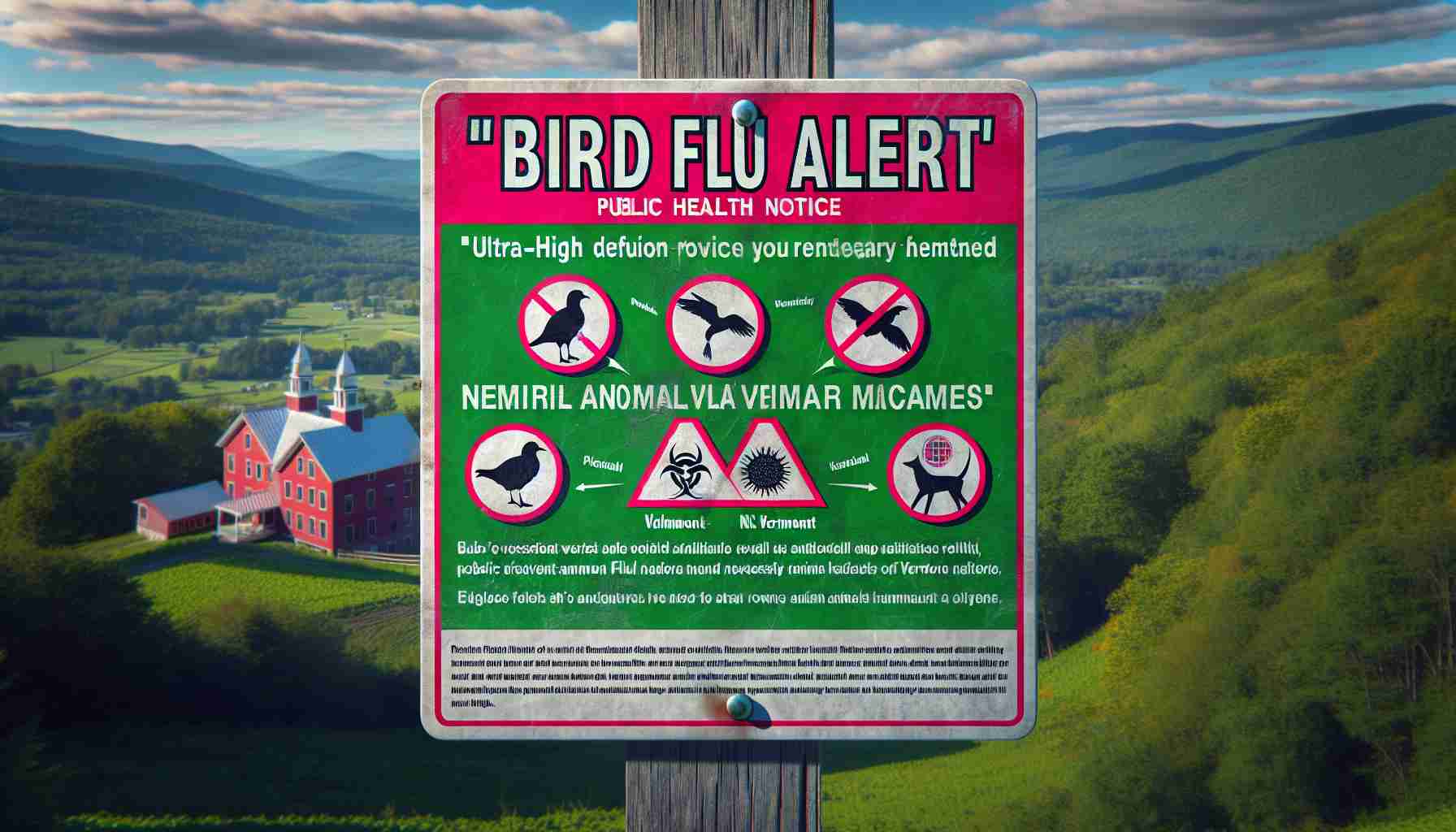Ongoing Threat to Animal Health in Vermont
The Vermont Agency of Agriculture, Food and Markets (VAAFM) along with the USDA has recently confirmed a case of highly pathogenic avian influenza (HPAI), commonly known as bird flu, in a backyard flock in Franklin County. This marks the fourth occurrence of HPAI in domestic birds in the state since 2022, underscoring the persistent threat to poultry.
A small backyard flock of 24 birds suffered the initial loss just days before the report. Following a mortality that alerted the owner, VAAFM initiated procedures to contain the outbreak. The remaining birds were quarantined and subsequently euthanized to halt further spread of the disease.
While this strain poses minimal risk to human health, the Vermont Department of Health is monitoring individuals who were in contact with the infected birds. Thus far, there have been no reported human cases in Vermont or surrounding areas during the current outbreak.
To bolster defenses against HPAI, poultry owners and farmers are strongly urged to implement and review biosecurity protocols. Measures should focus on minimizing wild bird contact and restricting access to livestock. Essential personnel should be prioritized, and any unusual illness or deaths in birds should be reported promptly to authorities.
As the agricultural community navigates this ongoing risk, vigilance is paramount in safeguarding flocks from this dangerous virus.
The Rising Challenge of Avian Influenza: Insights for Vermont’s Poultry Industry
Ongoing Threat to Animal Health in Vermont
The emergence of highly pathogenic avian influenza (HPAI) is a growing concern for poultry health in Vermont, following a recent confirmation from the Vermont Agency of Agriculture, Food and Markets (VAAFM) and the USDA. This incident highlights an urgent need for poultry owners and farmers to heighten their biosecurity measures to protect their livestock.
Latest Developments
As of the latest reports, this incident is the fourth case of HPAI detected in Vermont’s domestic bird populations since 2022. The affected flock, a small backyard group of 24 birds in Franklin County, experienced a rapid mortality event that prompted immediate action from the authorities. To prevent the disease from spreading, the birds were quarantined and subsequently euthanized.
Health Implications
Though the current strain of HPAI poses a negligible threat to human health, the Vermont Department of Health is taking precautions by monitoring individuals who had contact with the infected birds. Thankfully, no human cases related to the virus have been reported in the state or nearby regions during this outbreak.
Biosecurity Measures: A Necessity
Poultry owners and commercial farmers must prioritize biosecurity practices to mitigate the risk of HPAI. Key strategies include:
– Minimizing Contact with Wild Birds: This is crucial, as wild birds are a common vector for the virus. Implementing barriers and ensuring that feeding areas are safe from wild bird access can reduce risks significantly.
– Restricting Access to Poultry: Limiting the number of people entering poultry enclosures helps to prevent disease transmission from outside sources.
– Prompt Reporting of Illness or Deaths: Any unusual signs of illness or mortality within bird populations should be reported to local agricultural authorities immediately.
Market Analysis and Future Trends
The poultry industry in Vermont and beyond is facing a dual challenge of maintaining flock health while navigating the economic implications of HPAI outbreaks. Experts predict that agricultural markets might experience fluctuations as avian flu incidents can lead to temporary transport and sale restrictions, impacting farmers’ revenues.
Furthermore, as consumer awareness about food safety rises, there is a notable shift towards transparency in agricultural practices. Farmers who adopt stringent health measures and can certify the biosecurity of their operations may benefit from consumer trust and potentially higher prices for their products.
Conclusion
Vigilance and proactive measures are essential to safeguard poultry health in Vermont. The recent HPAI case serves as a reminder of the persistent risks facing the agricultural community. By reinforcing biosecurity practices and staying informed about disease outbreaks, poultry owners can better protect their livelihoods and contribute to a more resilient farming sector.
For more insights on agricultural trends and biosecurity best practices, visit the Vermont Agency of Agriculture.
